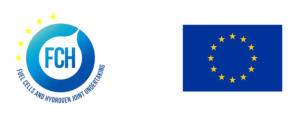Supply of clean water and efficient management of waste water are among the most vital urban environmental services. For communities, water related services are also often the biggest energy consumers – underlining the significance of water-energy nexus. It is therefore easy to view waste as a problem to be mitigated, something to be reduced to a tolerable level, and kept out of sight. Another mind-set is possible. Organic waste contains significant quantities of energy embedded in it. The facts that these streams of organic matter are distributed across our communities, trickle down in small streams and have low energy density, have made it difficult to capture that energy anywhere else but in locations with large populations and high population densities. A European project DEMOSOFC showcases a replicable concept by which power generation can be integrated into water services at superb efficiency in small and medium sized facilities, too, making good use of modular nature of fuel cells and fuel flexibility of SOFC technology. The video below presents the concept by an example from Collegno waste water treatment facility of SMAT in Turin region, Italy.
Majority of waste water in Europe is treated in small facilities where technical potential for power generation from biogas is below 500kW. Currently, penetration of combined heat and power generation in these facilities is modest, partly due to lack of high efficiency cogeneration systems in the power range, leaving a major segment underserved.
Integrated and modular power generation by fuel cells changes the game. With Convion’s solid oxide fuel cell systems, diluted, digester quality biogas can be directly converted to electricity at industry leading efficiency without costly removal of CO2 from the gas before its use. Utilization of heat of the exhaust gas for pre-heating the digester feedstocks raises the overall efficiency and energy autonomy to unprecedented level.
For more information, please, visit the DEMOSOFC project web site.
The DEMOSOFC project has received funding from the Fuel Cells and Hydrogen Joint Undertaking under grant agreement No 671470. Other partners in the project are Società Metropolitana Acque Torino S.p.A., Politecnico di Torino, VTT, a research center of Finland, and Imperial College of London.

